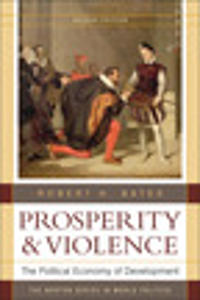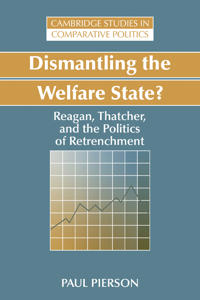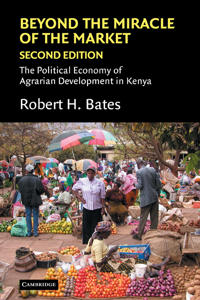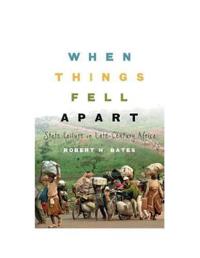Prosperity and Violence (Pocket)
avRobert H. Bates
ISBN: 9780393933833 - UTGIVEN: 2009-07As power and politics play a role in every society, rich or poor, Bates argues it is the reorganization of coercion--not its extinction--that underpins the security needed for investment. Although history makes clear that political structures can be used for destructive ends, it also demonstrates th[...]
Essays on the Political Economy of Rural Africa (Övrig)
avRobert H. Bates
ISBN: 9780520060142 - UTGIVEN: 1987-04-20The essays in this volume represent a dialogue between theory and data. The theory is drawn from a branch of contemporary political economy which can also be labeled the collective-choice school. The data are drawn from Africa. The book extends the methods of reasoning developed in collective choice[...]
Dismantling the Welfare State?: Reagan, Thatcher and the Politics of Retrenchment (Häftad)
avPaul Pierson, Peter Lange, Robert H. Bates
ISBN: 9780521555708 - UTGIVEN: 199509This book offers a careful examination of the politics of social policy in an era of austerity and conservative governance. Focusing on the administrations of Ronald Reagan and Margaret Thatcher, Pierson provides a compelling explanation for the welfare stateâs durability and for the few occasi[...]
Beyond the Miracle of the Market (Pocket)
avRobert H. Bates
ISBN: 9780521617956 - UTGIVEN: 2005-05As capitalism defeated socialism in Eastern Europe, the market displaced the state in the developing world. In Beyond the Miracle of the Market, first published in 2005, Bates focuses on Kenya, a country that continued to grow while others declined in Africa, and mounts a prescient critique of the n[...]
When Things Fell Apart (Pocket)
avRobert H. Bates
ISBN: 9780521715256 - UTGIVEN: 200802In the later decades of the twentieth century, Africa plunged into political chaos. States failed, governments became predators, and citizens took up arms. In When Things Fell Apart, Robert H. Bates advances an exploration of state failure in Africa. In so doing, he not only plumbs the depths of the[...]
When Things Fell Apart (Inbunden)
avRobert H. Bates
ISBN: 9780521887359 - UTGIVEN: 200802In the later decades of the twentieth century, Africa plunged into political chaos. States failed, governments became predators, and citizens took up arms. In When Things Fell Apart, Robert H. Bates advances an exploration of state failure in Africa. In so doing, he not only plumbs the depths of the[...]
Analytic Narratives (Häftad)
avRobert H. Bates, Avner Greif, Margaret Levi
ISBN: 9780691001296 - UTGIVEN: 199808Students of comparative politics have long faced a vexing dilemma: how can social scientists draw broad, applicable principles of political order from specific historical examples? In "Analytic Narratives", five senior scholars offer a new and ambitious methodological response to this important ques[...]
Open-Economy Politics: The Political Economy of the World Coffee Trade (Övrig)
avRobert H. Bates
ISBN: 9780691005195 - UTGIVEN: 1998-12-28Coffee is traded in one of the few international markets ever subject to effective political regulation. In "Open-Economy Politics", Robert Bates explores the origins, the operations, and the collapse of the International Coffee Organization, an international "government of coffee" that was formed i[...]










